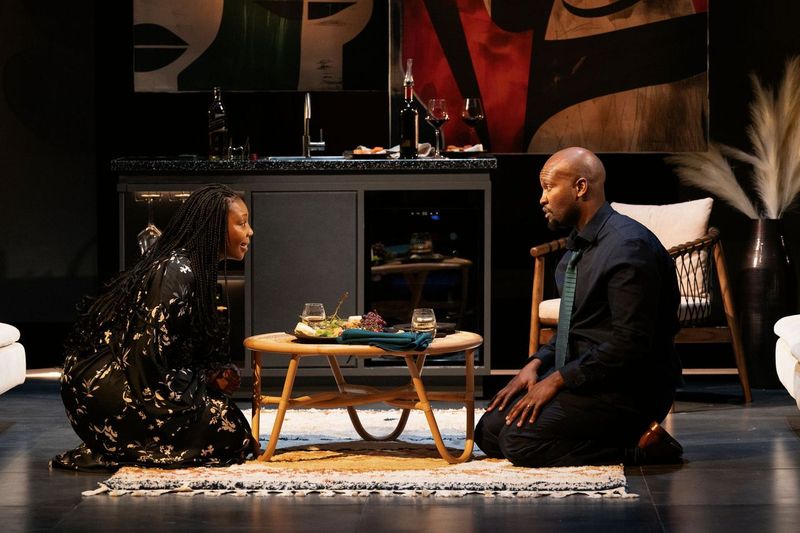Review: A GOOD HOUSE, The Royal Court
The production runs until 8 February

A Good House is frustrating because South African writer Amy Jeptha’s new play tantalises us with a pungent exploration of the cross section of community, class, and race but can’t find the blueprints to assemble its building blocks. A case of never being more than the sum of its parts, even if those parts have promise in themselves.
Sihle and Bonolo are the only black family in a white cul-de-sac in South Africa. They live on two sets of fault lines. The racial ones lingering from the spectre of apartheid, and class ones forged by capitalism. Sihle is a self-made financier who grew up in poverty. Bonolo, airily overenunciating, like a society heiress, on the other hand grew up “bougie”. Both are rich, but the three-way standoff with blackness, wealth, and class are the shifting tectonic plates crashing together at the play's epicentre.
Their attempt to integrate is jeopardised when a mysterious tin shack appears at the end of the street. Their white neighbours fear that their community will be swallowed up in a shanty town. Hostility begins to bubble beneath their toothy grins, faux warmth masks racism so deeply entrenched within their collective psyche that not even the supposedly liberal neighbours are privy to it. The wrong kind of community.
How to assimilate without relinquishing black identity? For Sihle, community boundaries are drawn on wealth. For Bonolo it is culture. Wealth is as much an equaliser as it is a divider for Jeptha, but she struggles to link slap happy dialogue with larger ideas. Scenes either drive full throttle or sag under the weight of banal gossip about house prices.
Nancy Media’s deft direction and sparky performances throughout find humour in amongst the awkward confrontations. Incongruous pauses are drawn out for comedic effect, accentuating the silliness of luxury: a silence pregnant with awkwardness as Merlot is poured at the dinner table. The shack gravitates from beneath and looms ominously upstage, almost a character in itself. ULTZ’s sparse but slick stage design tinges Jeptha’s melodrama with a flicker of the absurd.
Spoiler alert - we never learn who occupies the shack. It’s not so much an anticlimactic cop-out but a reflection of the play’s hesitancy to grasp the fundamental roots of the writing’s deeper politics. Jeptha’s observant hypotheses about community and belonging are fascinating but myopic writing blurs any clarity.
Theatre that prods at boundaries of community and identity is painfully pertinent in a nation waltzing on a political knife edge. The memory of summer race riots has not faded. Racism has skyrocketed. There’s so much we could learn from South Africa’s painful history. This has the potential to offer more.
A Good House runs at the Royal Court until 8 February
Photo Credits: Camilla Greenwell
Reader Reviews
Videos


